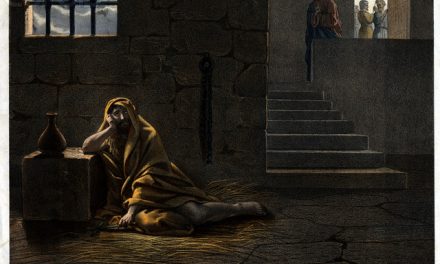This week we celebrate that great American holiday of Thanksgiving. Perhaps the details of the day – family, food, football – have come to obscure the name and meaning behind Thanksgiving. While not a Catholic liturgical holiday in its origins, Thanksgiving nonetheless indicates something absolutely fundamental to Catholic life: recognizing gifts from God and offering thanks to God for those gifts.
“Eucharist,” the Greek word for thanksgiving, reflects this importance of thanksgiving for the Christian life; Eucharist was the choice of the early church to name both the liturgy and the sacrament received during that liturgy.
At the spring 2018 meeting of the Catholic Theological Society of America, Christopher Ruddy presented an excellent paper on the “theology of praise,” as a task for theologians. John Cavadini has also noted, relying on St. Augustine, that the meaning of life is to praise God, to learn to say “thank you” better.
For moral theologians, this may seem strange. The usual tasks seem to involve interacting with and addressing contemporary moral issues or crises, both inside and outside of the Church. There are so many topics that require our attention – from immigrants and war to ecclesial scandals. There are also various Church teachings to investigate, understand, and explain. There are opportunities to teach students and to argue with colleagues.
It is all too easy to be caught up in the past, the present, or the future, or to become enmeshed in the details of an argument, such that the task – and gift – of praise and thanksgiving is forgotten. This cannot be good for our work or for us. Rather, we might ask ourselves, what would be the impact of framing the work of moral theology in terms of praise and thanksgiving?



